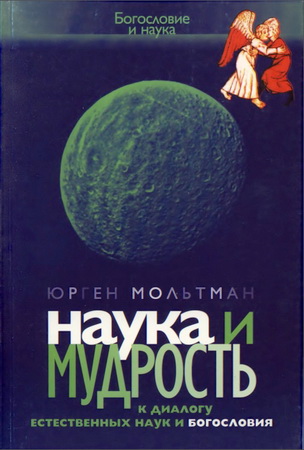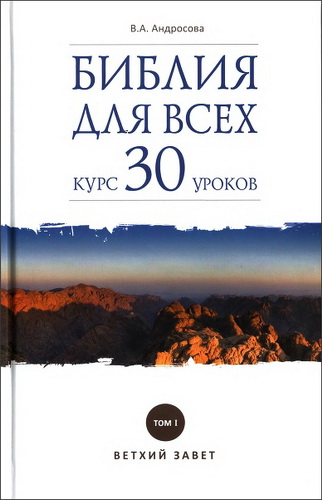
Honderich - Oxford Companion to Philosophy - книги и модуль BibleQuote
THE brave, large aim of this book has been to bring philosophy together between two covers better than ever before. That is not a job for one man, or one woman, or a few, or a team, although it is tried often enough. So 249 of us joined forces joined forces ten years ago for the first edition. We have now been reinforced by forty-two more contributors for this second edition. To the 1,932 entries in the first edition, about 300 more have been added. Also, many of the entries in the first edition have been considerably lengthened and revised. Many others have been updated. The list of contemporary philosophers in the first edition has been adjusted in order to reflect what McTaggart denied, that time is real.
The philosophy brought together includes, first of all, the work of the great philosophers. As that term is commonly used, there are perhaps twenty of them. By anyone’s reckoning, this pantheon of philosophy includes Plato, Aristotle, Aquinas, Hobbes, Descartes, Spinoza, Leibniz, Locke, Berkeley, the blessed Hume, Kant, Hegel, and Nietzsche. These, together with others who stand a bit less solidly in the pantheon, are the subjects of long essays in this book.
Philosophy as this book conceives it, secondly, includes all of its history in the English language, a history mainly of British and American thinkers. In this history there are many figures not so monumental as Locke, Berkeley, and Hume. Among them, if they are not admitted to the pantheon, are John Stuart Mill, Charles Sanders Peirce, Bertrand Russell, and, if an Austrian can be counted in this particular history, and should be, Ludwig Wittgenstein. They also include Jonathan Edwards, Thomas Reid, William James, and F. H. Bradley.
Thirdly, if the book cannot include all of the histories of philosophy in languages other than English, it does attend to them. It attends to more than the great leaders of the philosophies in these languages. Thus Descartes is joined by such of his countrymen and countrywomen as Simone de Beauvoir, Henri Bergson, and Auguste Comte. Kant and Hegel are joined by J. G. Fichte, Jürgen Habermas, Karl Jaspers, and others. There are also general entries on each of the national philosophies, from Australian to Croatian to Japanese to Russian.
A fourth part of the book, not an insignificant one, consists in about 150 entries on contemporary philosophers, the largest groups being American and British. It would have been an omission to leave out contemporaries, and faint-hearted. Philosophy thrives. Its past must not be allowed to exclude its present. It is true, too, that one of these contemporaries may one day stand in the pantheon.
What has now been said of four subject-matters within philosophy as the book conceives it can be said differently. These subject-matters can be regarded less in terms of individual thinkers and more in terms of ideas, arguments, theories, doctrines, world-views, schools, movements, and traditions. This contributes to another characterization of the book, more complete and at least as enlightening, perhaps more enlightening. In particular, it brings out more of the great extent to which the book is about contemporary philosophy rather than the subject’s history.
Ted Honderich - Oxford Companion to Philosophy
2nd Edition. – Oxford University Press, 2005. – 1088 p.
ISBN 978-0199264797
Encyclopaedists
A group of eighteenth-century European scholars, scientists, writers, and artists who collaborated in a massive effort to bring the fruits of human learning together into a single publication. Under the editorship of Denis Diderot and Jean d’Alembert, this ‘encyclopaedia’ was intended as both a concise summation of all theoretical knowledge, and a practical manual of concrete ‘how-to-do-it’ advice of use to every worker in his shop. It also contained, through a complex system of ironic, and often irreverent, ‘cross-references’, a surreptitious challenge to the traditional authority of the Catholic Church, and to the political establishment as well. Publication was intermittently suspended by the authorities, but eventually permitted to see completion. The final edition of the work appeared in 1772, and comprised a total of seventeen volumes of text and eleven volumes of technical, illustrative plates.
P.F.J.
- * dictionaries and encyclopaedias of philosophy.
- John Viscount Morley, Diderot and the Encyclopaedists, 2 vols. (first pub. 1923; Ann Arbor, Mich., 1971).
linguistic turn
Collective designation for a range of otherwise quite disparate trends in twentieth-century thought. What they all have in common is an appeal to language, to * discourse, or forms of linguistic representation as the furthest point that philosophy can reach in its quest for knowledge and truth. There are no ‘facts’ outside language, and no ‘reality’ other than that which presents itself under some linguistic description. Thus philosophers can only be deluded if they seek to render language more accurate or perspicuous by removing its various natural imperfections—ambiguity, metaphor, opaque reference, etc.—and achieving a crystalline transparency of logical form. Rather they should follow Wittgenstein’s example and acknowledge the open multiplicity of *‘language-games’ (or cultural *‘forms of life’), each with its own criteria for what counts as a valid or meaningful utterance. In short, the proper business of philosophy in this therapeutic mode is to cure language of its abstract cravings and (in the words of Stanley Cavell) to ‘lead it back, via the community, home’.
The project thus described was pursued most zealously by J. L. Austin and the proponents of so-called ‘ordinary language’ philosophy. ‘Our common stock of words’, Austin wrote, ‘embodies all the distinctions men have found worth drawing... in the lifetimes of many generations: these are surely likely to be more numerous, more sound, and more subtle... than any that you or I are likely to think up in our arm-chairs of an afternoon—the most favoured alternative method’. But the trouble with this approach, as many have felt, is its tendency to consecrate the nuances of received (‘common-sense’) wisdom while failing to address more substantive philosophical issues. Thus it can easily give rise to an outlook of laissez-faire relativism or an inert consensus based recommendation that philosophy should cease asking awkward questions and be content—in Wittgenstein’s phrase—to ‘leave everything as it is’.
C.N.
- J. L. Austin, ‘A Plea for Excuses’, in Philosophical Papers (London, 1961).
- Richard Rorty (ed.), The Linguistic Turn: Recent Essays in Philosophical Method (Chicago, 1967).
- ——— Philosophy and the Mirror of Nature (Oxford, 1980).
- Ludwig Wittgenstein, Philosophical Investigations, tr. G. E. M. Anscombe (Oxford, 1953).





Комментарии
Пока нет комментариев. Будьте первым!